January 17, 2017
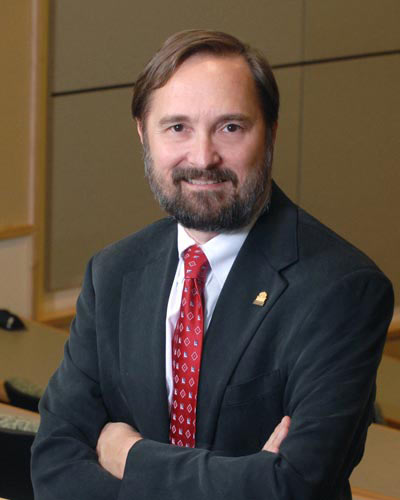
Studies Focus on Ebola, Immune Cells, Vaccines, Biofilms and Other Topics
New research by scientists at the University of Maryland School of Medicine (UM SOM) and the University of Maryland School of Dentistry (UM SOD), is highlighted in a special issue of Pathogens and Disease.
The issue focuses on key issues in infection and immunity, which are crucial research areas at the institution. It includes 22 articles, mini-reviews, and commentaries on a range of infectious agents, including Ebola and Clostridium difficile, as well as new vaccine approaches at the UM SOM Center for Vaccine Development and comparative genomics studies of protozoan parasites at UM SOM Institute for Genome Science.
“I’m very proud to be a part of this undertaking,” said one of the editors of the issue, James B. Kaper, PhD, Senior Associate Dean for Academic Affairs and Professor and Chair in the Department of Microbiology & Immunology at UM SOM. “From biofilms to Ebola, this work by scientists at UM SOM and UM SOD is really advancing our knowledge in important ways.”
“This special issue, focusing on the work of one institution provides a time capsule of the state-of-the-art research being done at UMB in infectious disease and immunity research,” said Editor-in-Chief of Pathogens and Disease, Patrik Bavoil, PhD, Professor & Chair of the Department of Microbial Pathogenesis at UM SOD and Adjunct Professor in the Department of Microbiology and Immunology at UM SOM. “It also provides a glimpse of the collaborative spirit between the School of Medicine and the School of Dentistry in terms of infectious disease research.”
Alan Schmaljohn, PhD, a Professor in the Department of Microbiology & Immunology at UM SOM, along with George Lewis, PhD, a Professor of Microbiology and Immunology at UM SOM and director of the Division of Vaccine Research at the UM SOM Institute of Human Virology, co-authored a review paper looking at how Ebola antibodies provide protection. It appears that many Ebola antibodies work not primarily by neutralizing the virus, but by targeting cells that have already been infected by the virus. By doing this, the cell-targeting antibodies decrease transmission of the virus from infected cells to healthy cells. The paper illustrates the complex ways by which these antibodies protect against the disease.

From Schmaljohn and Lewis’ paper: Contrary to the view that “virus neutralization” is the only means of antibody-mediated protection, antibody molecules that arise after vaccination or infection may have multiple antiviral functions (shown as areas of overlap), and neutralization is not always necessary or sufficient to provide immunity (shown as sets of antibodies that protect animals but do not neutralize virus)
Tonya Webb, PhD, an Associate Professor in the Department of Microbiology & Immunology, contributed two papers. In one, she focuses on sphingosine 1-phosphate (S1P), a molecule that plays a key role in immunity and inflammation. She argues that it may be possible to target the S1P pathway as a way to fight cancer.
In another paper, Dr. Webb looked at the central signaling pathways that activate the innate immune system. One of these pathways is the AMPK pathway, which gets activated during viral infection. Dr. Webb and her colleagues found that the pathway is also active in human tumor cells. This finding has potential clinical significance, because there are certain drugs that can induce activation of the AMPK pathway, including the already-approved diabetes drug Metformin. Treatment with these drugs might increase the ability of the immune system to recognize and kill cancer cells.
Another article details an investigation into the antibiotic-resistant superbug Clostridium difficile, which causes 30,000 deaths in the United States each year and for which, as yet, no effective prevention is available. Antibodies against the bacterial toxins, the culprit of the disease, have proven to be protective against the infection in animal disease models and in clinical trials. However, antibodies are impractical for prevention due to their high cost and short life in serum after delivery. In this study, Hanping Feng, PhD, Professor in the Department of Microbial Pathogenesis at UM SOD and Adjunct Associate Professor in the Department of Microbiology and Immunology at UM SOM, and his colleagues engineered an attenuated virus for delivering anti-toxin antibodies. They demonstrated that virus-infected mice express highly potent anti-toxin antibodies that are fully protective against both primary and recurrent C. difficile infection for up to two months. This novel strategy has great potential for the prevention against C. difficile infection.
An article co-authored by Alison J. Scott, PhD, Research Associate Professor of the Department of Microbial Pathogenesis at UM SOD, along with Robert K. Ernst, PhD, Professor in the Department of Microbial Pathogenesis at UM SOD and an Adjunct Professor in the Department of Microbiology and Immunology at UM SOM, focused on new methods and tools to investigate lipid A, advancing the study of lipids in the interactions of bacteria and their hosts. The researchers improved the ability to detect host and bacterial lipids as much as 100-fold, employing the matrix norharmane in mass spectrometric imaging experiments. The paper highlights paths for improving the understanding of how pathogens interact with their animal and human hosts.
 “This collaborative work really shows the breadth and depth of the research being done here on infection and immunity,” said UM SOM Dean E. Albert Reece, MD, PhD, MBA, who is also the Vice President for Medical Affairs, University of Maryland, and the John Z. and Akiko K. Bowers Distinguished Professor. “Our scientists are using exciting approaches and innovative tools to analyze and help solve these critical global health challenges.”
“This collaborative work really shows the breadth and depth of the research being done here on infection and immunity,” said UM SOM Dean E. Albert Reece, MD, PhD, MBA, who is also the Vice President for Medical Affairs, University of Maryland, and the John Z. and Akiko K. Bowers Distinguished Professor. “Our scientists are using exciting approaches and innovative tools to analyze and help solve these critical global health challenges.”
 “The research being conducted here in dentistry and medicine will significantly advance our understanding of the treatment and prevention of an array of infectious diseases. This issue highlights some of the innovative, collaborative work at the University of Maryland,” said School of Dentistry Dean Mark A. Reynolds, DDS, PhD.
“The research being conducted here in dentistry and medicine will significantly advance our understanding of the treatment and prevention of an array of infectious diseases. This issue highlights some of the innovative, collaborative work at the University of Maryland,” said School of Dentistry Dean Mark A. Reynolds, DDS, PhD.
About the University of Maryland School of Medicine
The University of Maryland School of Medicine was chartered in 1807 and is the first public medical school in the United States and continues today as an innovative leader in accelerating innovation and discovery in medicine. The School of Medicine is the founding school of the University of Maryland and is an integral part of the 11-campus University System of Maryland. Located on the campus of the University of Maryland, Baltimore, the School of Medicine works closely with the University of Maryland Medical Center and Medical System to provide a research-intensive, academic and clinically based education. With 43 academic departments, centers and institutes and a faculty of more than 3,000 physicians and research scientists plus more than $400 million in extramural funding, the School is regarded as one of the leading biomedical research institutions in the U.S. with top-tier faculty and programs in cancer, brain science, surgery and transplantation, trauma and emergency medicine, vaccine development and human genomics, among other centers of excellence. The School is not only concerned with the health of the citizens of Maryland and the nation, but also has a global presence, with research and treatment facilities in more than 35 countries around the world. medschool.umaryland.edu/
The University of Maryland School of Dentistry is the direct descendant of the world’s first dental college, the Baltimore College of Dental Surgery, which was chartered in 1840. Located on the campus of the University of Maryland, Baltimore, it is ranked eighth by the NIH among U.S. dental schools in research funding and seeks to foster the next generation of leading oral health care professionals while shaping the future of dental health research, education, and care. Comprising 12 divisions, UMSOD conducts pioneering research and is committed to local and global community service; it provides services to nearly 27,000 patients annually. www.dental.umaryland.edu
Learn More
• UM SOM Center for Vaccine Development
• Department of Microbial Pathogenesis at UM SOD
• Department of Microbiology & Immunology at UM SOM
• UM SOM Institute for Genome Science
Contact
Office of Public Affairs
655 West Baltimore Street
Bressler Research Building 14-002
Baltimore, Maryland 21201-1559
Contact Media Relations
(410) 706-5260
Related stories
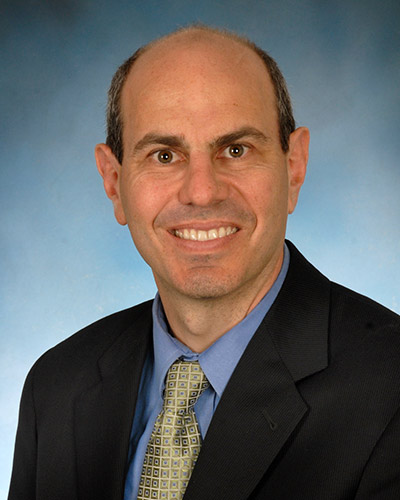
Thursday, October 12, 2023
UM School of Medicine Researchers Provide First Statewide Prevalence Data on Two New Emerging Pathogens in Healthcare Settings
University of Maryland School of Medicine (UMSOM) researchers conducted a statewide survey of all patients on breathing machines in hospitals and long-term care facilities and found that a significant percentage of them harbored two pathogens known to be life-threatening in those with compromised immune systems. One pathogen, Acinetobacter baumannii, was identified in nearly 31 percent of all patients on ventilators to assist with their breathing; Candida auris was identified in nearly 7 percent of patients on ventilators, according to the study which was published today in the Journal of the American Medical Association.
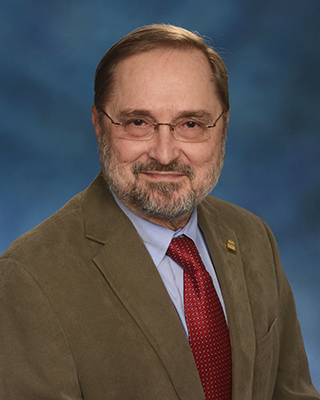
Monday, July 01, 2019
James Kaper Receives Prestigious American Society for Microbiology D.C. White Mentoring Award
James B. Kaper, PhD, the James and Carolyn Frenkil Distinguished Dean’s Professor Vice Dean for Academic Affairs and Professor and Chairman of the Department of Microbiology & Immunology at the University of Maryland School of Medicine (UMSOM), received the 2019 American Society of Microbiology (ASM) D.C. White Award for his accomplishments in interdisciplinary research and mentoring in microbiology.
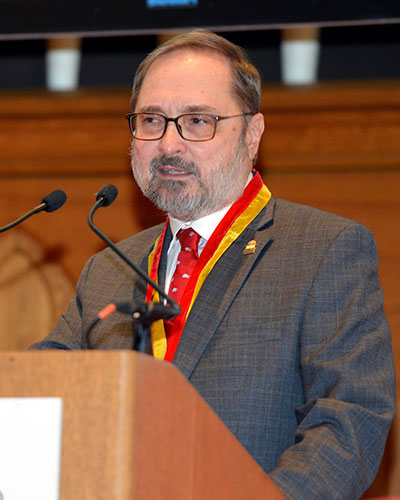
Wednesday, January 16, 2019
James B. Kaper, PhD, Endowed as James and Carolyn Frenkil Distinguished Dean's Professor
James B. Kaper, PhD, Professor and Chair of the Department of Microbiology & Immunology and Vice Dean for Academic Affairs, was invested as the James & Carolyn Frenkil Distinguished Dean’s Professor on January 10 before a packed audience at Westminster Hall. Surrounded by family, friends, past and present colleagues and distinguished scientists, Dr. Kaper joined the elite group of 82 SOM faculty who currently hold endowed professorships, the highest honor bestowed by the SOM on individual faculty members.
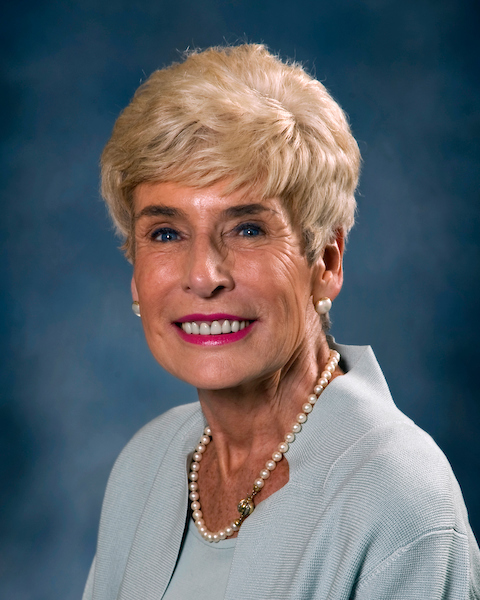
Tuesday, July 31, 2018
University of Maryland School of Medicine Establishes Two Endowed Professorships Through Private Gifts and Matching State Funds
University of Maryland School of Medicine (UMSOM) Dean E. Albert Reece, MD, PhD, MBA, announced today that the school has been awarded matching funds from the Maryland E-Nnovation Initiative Fund (MEIF), administered by the Maryland Department of Commerce. The funds, when combined with private philanthropy, will enable UMSOM to establish two new endowed professorships – one in Microbiology and Immunology, and one in Pharmacology.
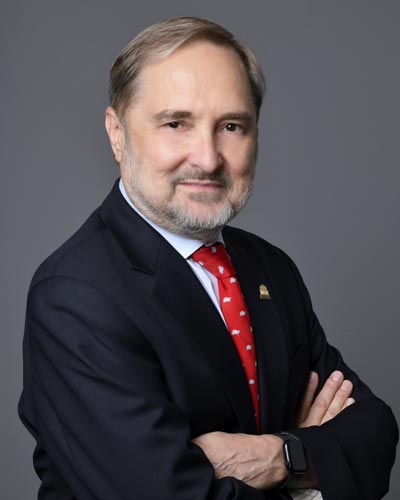
Tuesday, October 04, 2016
UM SOM Launches Unprecedented Initiatives to Create New Generation of Research Scientists Among Students, Trainees and Faculty
New and expanded research development programs at the University of Maryland School of Medicine will include focus on developing junior, minority and female faculty investigators as well as students and trainees.
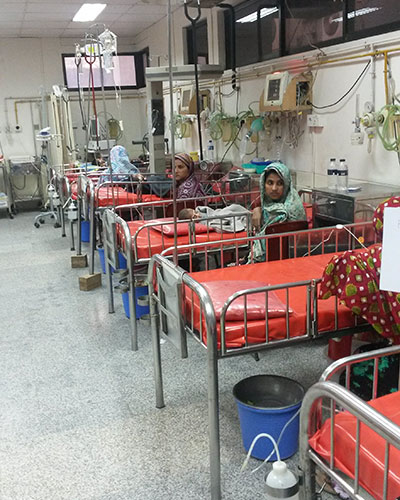
Friday, June 10, 2016
FDA Approves Vaccine for Cholera Invented and Developed at University of Maryland School of Medicine
In a milestone that was years in the making, a vaccine to prevent cholera, invented and developed by researchers at the University of Maryland School of Medicine’s Center for Vaccine Development, was approved today by the U.S. Food and Drug Administration (FDA).
